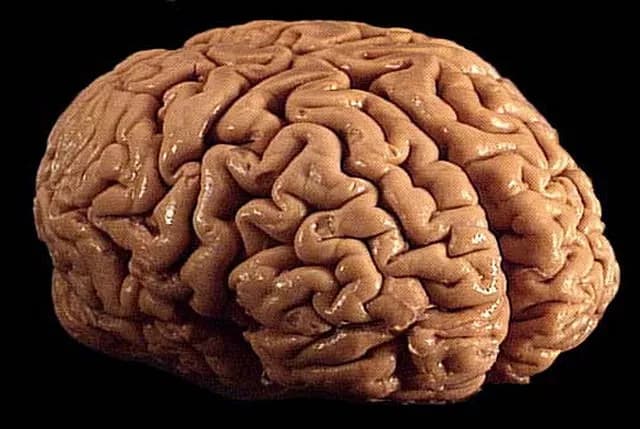
Large Human Brain Evolved As A Result Of 'Sizing Each Other Up'
Humans have evolved a disproportionately large brain as a result of sizing each other up in large cooperative social groups, researchers have proposed.
A team led by computer scientists at Cardiff University suggest that the challenge of judging a person's relative standing and deciding whether or not to cooperate with them has promoted the rapid expansion of human brain size over the last 2 million years.
In a study published in Scientific Reports, the team, which also includes leading evolutionary psychologist Professor Robin Dunbar from the University of Oxford, specifically found that evolution favors those who prefer to help out others who are at least as successful as themselves.
Lead author of the study Professor Roger Whitaker, from Cardiff University's School of Computer Science and Informatics, said: "Our results suggest that the evolution of cooperation, which is key to a prosperous society, is intrinsically linked to the idea of social comparison -- constantly sizing each up and making decisions as to whether we want to help them or not.
"We've shown that over time, evolution favors strategies to help those who are at least as successful as themselves."
In their study, the team used computer modelling to run hundreds of thousands of simulations, or 'donation games', to unravel the complexities of decision-making strategies for simplified humans and to establish why certain types of behaviour among individuals begins to strengthen over time.
In each round of the donation game, two simulated players were randomly selected from the population. The first player then made a decision on whether or not they wanted to donate to the other player, based on how they judged their reputation. If the player chose to donate, they incurred a cost and the receiver was given a benefit. Each player's reputation was then updated in light of their action, and another game was initiated.
Compared to other species, including our closest relatives, chimpanzees, the brain takes up much more body weight in human beings. Humans also have the largest cerebral cortex of all mammals, relative to the size of their brains. This area houses the cerebral hemispheres, which are responsible for higher functions like memory, communication and thinking.
The research team propose that making relative judgements through helping others has been influential for human survival, and that the complexity of constantly assessing individuals has been a sufficiently difficult task to promote the expansion of the brain over many generations of human reproduction.
Professor Robin Dunbar, who previously proposed the social brain hypothesis, said: "According to the social brain hypothesis, the disproportionately large brain size in humans exists as a consequence of humans evolving in large and complex social groups.
"Our new research reinforces this hypothesis and offers an insight into the way cooperation and reward may have been instrumental in driving brain evolution, suggesting that the challenge of assessing others could have contributed to the large brain size in humans."
According to the team, the research could also have future implications in engineering, specifically where intelligent and autonomous machines need to decide how generous they should be towards each other during one-off interactions.
"The models we use can be executed as short algorithms called heuristics, allowing devices to make quick decisions about their cooperative behaviour," Professor Whitaker said.
"New autonomous technologies, such as distributed wireless networks or driverless cars, will need to self-manage their behaviour but at the same time cooperate with others in their environment."
The above post is reprinted from materials provided by Cardiff University. Note: Content may be edited for style and length.
Disclaimer: DoveMed is not responsible for the adapted accuracy of news releases posted to DoveMed by contributing universities and institutions.
Primary Resource:
Whitaker, R. M., Colombo, G. B., Allen, S. M., & Dunbar, R. I. (2016). A Dominant Social Comparison Heuristic Unites Alternative Mechanisms for the Evolution of Indirect Reciprocity. Scientific Reports, 6.
Related Articles
Test Your Knowledge
Asked by users
Related Centers
Related Specialties
Related Physicians
Related Procedures
Related Resources
Join DoveHubs
and connect with fellow professionals

0 Comments
Please log in to post a comment.